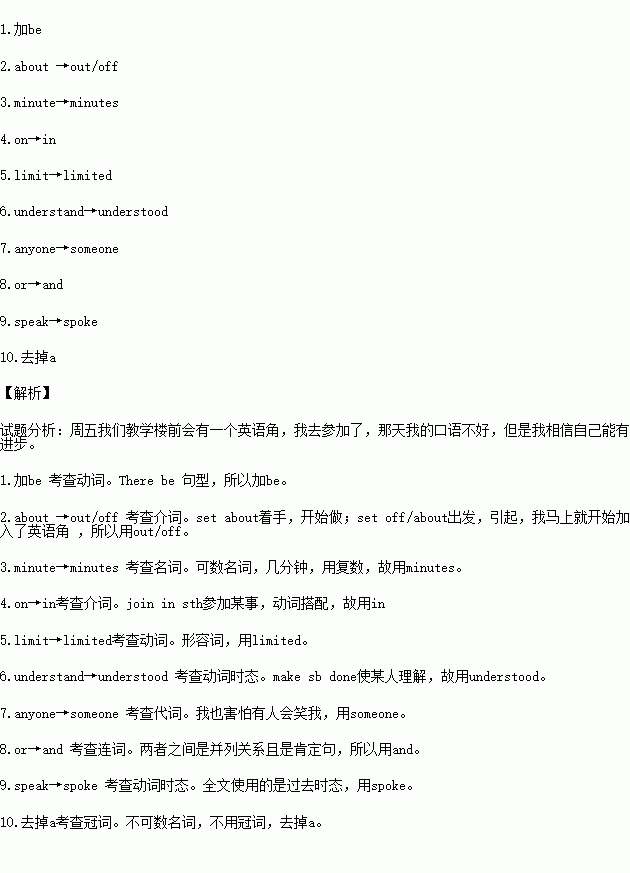题目内容
短文改错
文中共有10处语言错误,每句中最多有两处。
增加:在缺词处加一个漏字符号(∧),并在其下面写出该加的词。
删除:把多余的词用斜线(\)划掉。
修改:在错的词下划一横线,并在该词下面写出修改后的词。
注: 1.每处错误及其修改均仅限一词;
2.只修改10处,多者(从第11处起)不计分。
On Friday, our teacher told us that there would an English corner in front of our teaching building. I set about soon after the last class in the afternoon.
To my joy, the English corner had just been on for a few minute. I joined them on their talk. At first, I was afraid that my English was so poor and limit that I couldn’t follow them or make myself understand. I was also afraid that anyone might laugh at me. But a smiling face here or an encouraging nod there soon put me at ease. Though I speak to them only in simple English that day, I believe in future I will make a greater progress.
练习册系列答案
 全优点练单元计划系列答案
全优点练单元计划系列答案
相关题目


